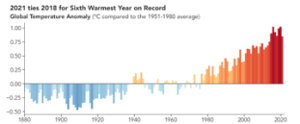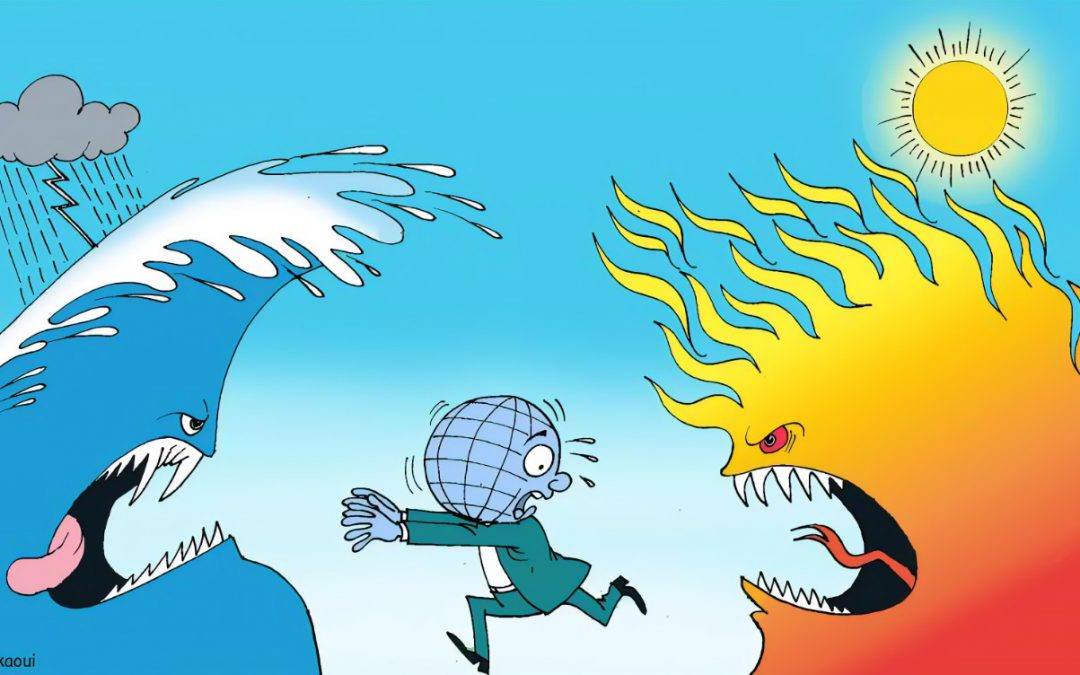
Are we Sufficiently using Clean Energy? Global Warming is still on the Rise!
Year after Year, temperatures rise across the world with an increase in the overall emissions of CO2 and other gases correlated with global warming. Sea levels are at risk of rising, climate change is on the rise, increased risks of droughts and floods and threats to biodiversity. All this as a consequence of global warming and finally putting people’s lives at risk and the survival of the world. Although we have a solution available, we are not efficiently relying on it neither optimizing its use. SDG 7 requires a world responsibility towards providing accessible and clean energy sources, one of our key responsibilities is to ensure that we reach this goal adequately by the year 2030.
“Amount of CO2 in the atmosphere is 50% more than the 1900s.”
“Temperatures increasing yearly, and summers getting hotter.”
These are words repeated by people over and over, but are we reacting?

The following shows the rise in temperatures.
Global Warming:
The root problem!
Global warming was identified as a global issue during the 1980s, during the year 1988 world hottest summers were recorded. Since then, hotter summers have been recorded, increasing temperatures are still being recorded along continuous increase in CO2 and greenhouse gas emissions. Renewable energy was first explored in 1927 through wind turbines, although such resources are available, they are still not used adequately to encounter the rising temperatures issue. Renewable energy resources are available, but their usage is not improving.
Renewable Energy:
Are we sufficiently using them?
- World resources institute states that renewable energy resources emit 50g or less of CO2 emissions per KWh over their lifetime, compared to about 1000g CO2/KWh for coal and 475g CO2/KWh for natural gas.
Renewable and clean energy resources such as solar power, wind power, hydro power or nuclear power are highly available and further resources could be developed. Current resources are not efficiently used along with no clear plans or transition to more clean energy resources. On the other hand, not all countries or people have appropriate access to clean energy resource neither the resources or accommodations required to develop them.
The infrastructure and development of renewable energy is highly costly, but costs for using such energy on the long-term are cheaper, current fossil fuel prices are set to be cheaper as the pollution consequences and carbon-fee are not interpreted into the pricing strategy of gases and fossil fuels. Governments and Organizations are avoiding the transition due to its high costs but at the cost of polluting and putting high risks on our environment our health and survival of earth.
A clear rise in CO2 emissions accompanied by a decrease of renewable energy consumption is shown and identified by world development indicators.
Actions Required:
- Optimizing usage of currently available clean energy resources and services.
- Increase the availability of clean energy sources and reliance on them across different sectors and industries.
- Raise Awareness on the problem “that we have the resources and capabilities needed to reduce global warming” but we are not efficiently using them.
- Raise Awareness about the risks and effects of global warming along with the quick rate it is happening at.
Governments and World organizations planning strategies to increase the use of renewable enerygy and conducting awareness campaigns to influence the public and future image.
If we don’t protect our environment and nature, we can’t protect ourselves. Floods, drought, higher rates of contamination, increased health risks and the slow death of our planet are the cost of using cheaper resources.
